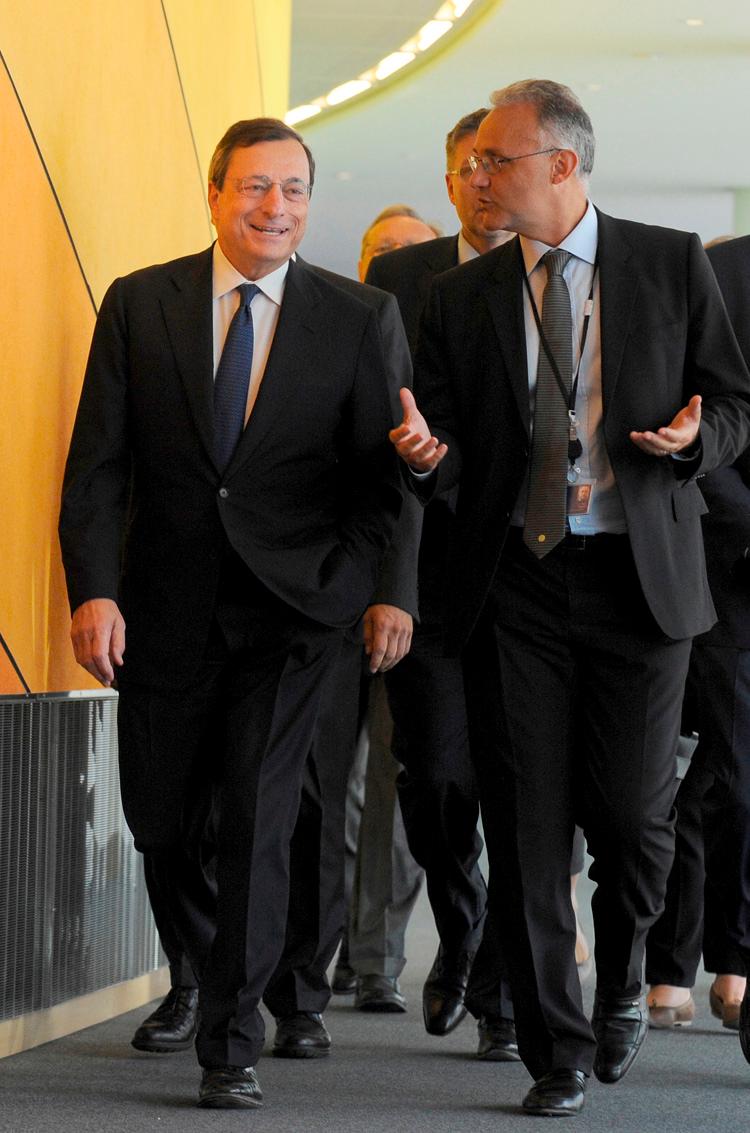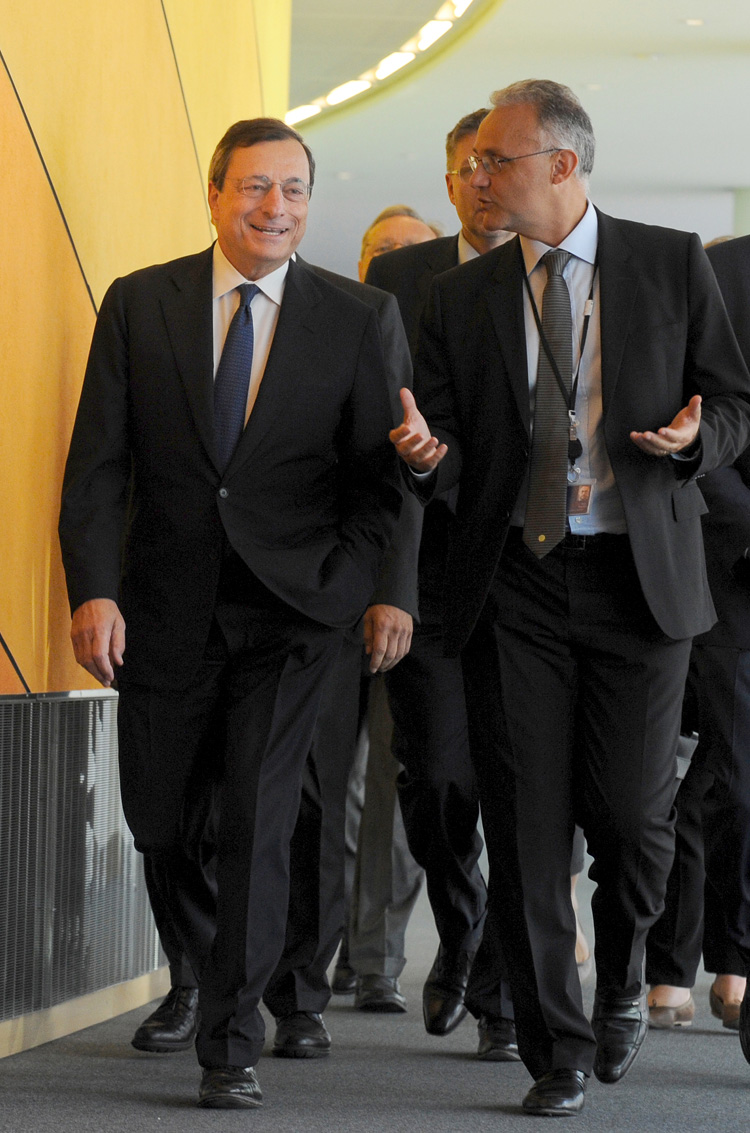The European Central Bank (ECB) holds its monetary policy meeting Thursday in Frankfurt, Germany. ECB meetings have gained prominence with market participants, as the institution is perceived to be the only player to prevent a failure of the eurozone.
Financial markets have been at the whim of the European sovereign debt crisis ever since it started in 2010, with Greece being the first casualty. Since then the problems have spread to Ireland and Portugal, which have also been officially bailed out by the European Union, the International Monetary Fund (IMF), and the ECB. This year, the crisis spread to Spain, which so far has refused to request a bailout but has accepted 100 billion euros ($126 billion) from European Union funds to bail out its banking system.
Given the size of Spanish and Italian bond markets, as well as the limitation of taxpayer funded rescue mechanisms like the EFSF and the ESM, the market looks to the ECB for a permanent solution to debt problems in the peripheral countries. ECB President Mario Draghi went on record in early August saying that the ECB would do anything to preserve the euro if it is “within its mandate,” which has a primary focus on price stability and explicitly forbids direct monetization of state debt, something the Federal Reserve has undertaken in its quantitative easing (QE) programs.
Markets Expected Unlimited Bond Buying
Despite the wording of the mandate of the ECB, markets have been pushing for direct monetization of peripheral bonds, using yield caps, a mechanism where the ECB would buy an unlimited number of bonds until the yield sinks to a predetermined level.
Rumors have been heating up since Monday that the ECB would indeed announce such a drastic measure, as comments by Draghi that he made to a group of EU lawmakers were leaked to Bloomberg: “If we go on the short-term part of the market where bonds have a length of time, a maturity of up to one year, two years or even three years, these bonds will easily expire, so there is very little monetary financing if anything at all that we are doing.” According to Draghi, these purchases would only be undertaken if the country at first requests an official bailout and promises to undertake fiscal reform.
According to various European media outlays, many politicians in the relatively better-off creditor nations oppose unlimited bond buying and Draghi has even been labeled a “counterfeiter” by German coalition member Alexander Dobrindt, who in his somewhat extreme statement expressed the fear of runaway inflation that many members of the northern European public have.
ECB Will Likely Opt for Compromise
Given the high market expectations on the one hand and the opposition of central bankers and politicians in northern European countries such as Germany, Netherlands, Finland, and Austria on the other hand, the ECB will likely announce a compromise Thursday, according to comments by unidentified official sources made to Bloomberg.
These sources claim that the ECB will announce unlimited buying, but with a catch. While it might buy unlimited numbers of peripheral bonds, it would have to sell the same number of other bonds in order to keep the size of its balance sheet in check. This has been done before and is thought of to be consistent with the ECB’s mandate.
“Finally, [with] regard [to] the bond-buying program, we expect the ECB to confirm that its interventions would mostly take place on maturities of up to three years and that the bond purchases would be sterilized at the main refinancing rate,” says Riccardo Barbieri Hermitte, chief European economist at Mizuho in a note to clients.
The ECB meeting will start at 3 a.m. EDT, with the announcement of policy coming out at 7:45 a.m. EDT. A press conference with Mario Draghi will be held at 8:30 am EDT.
The Epoch Times publishes in 35 countries and in 19 languages. Subscribe to our e-newsletter.







